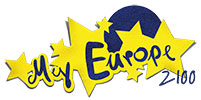“We dance to a million beats
In millions of streets
Different rivers flow together
And the wave sets you free”,
the chorus of the song “The Experience” by Diversidad should make us all think hard about what Europe really is and its potential for the future. Freedom is one of the most important values at the heart of a future Europe, but also the values of security, justice, dignity and equality are the pillars necessary to help create a stronger Europe. All Europeans need to think and act as Europeans. Events such as the musical project Diversidad, held in Paris and financed by the European Commission that reunited twenty young hip-hop artists, rappers, singers and beat-makers from twelve different European countries, demonstrate how easily we can find a connection – a strong connection that pulls us together like a magnetic force and makes us feel as one.
Traveling from one state to another in Europe has become so easy – the old borders are now only history. All of the customs offices are now just monuments of frontiers that once existed. Youngsters hop on inter-rail trains and cross from one country to another, discovering the allure of landscapes, monuments and culture. They can’t even relate to the bureaucracy involved in crossing a political border from one member state to another as the older generations did; as a consequence, they feel much more “European citizens” than adult generations ever did.
Exchange programs, such as the Erasmus student network, allow students to study abroad for six months or more thus promoting not only integration between students of different backgrounds, but also a higher quality of international education. Such initiatives help create a true European identity among these students.
Many are afraid that the EU will cause a loss of traditions, but instead it should aim at sharing those traditions in order to enrich the lives of those experiencing the beauty of different cultures. If we only think of how European languages are engaged in constant give or take, especially when one country develops a new concept, for which other countries do not have a term yet. Cultural borrowing of words mainly represents typical traits of the country of origin; for example the Spanish word “macho” used all over the world or the English word “weekend”. The first thing that comes to mind is, of course, food: who does not recall Italian pizza or pasta, German pretzel or wurstel, French baguette or croissant?
Multiculturalism is also evident in the clothes that we wear – fashion is another strong connector amongst youngsters. Zara, for example, has revolutionized the way we buy clothes and dictates the style which we all have in common throughout the EU.
Beyond all this history, beyond Europe, beyond cultural diversity, exchange, languages, many barriers have been overcome in music, education, language and fashion.
So, are we really that different? What are the true obstacles behind a cultural, social and political union?
In 10, 20, 30 years or more when we will finally have a European Constitution, maybe the adult generations will realize what they lost in the years before, but the younger generations will finally have achieved their creation. As it appears now, Europe is an economic giant, but a political and social dwarf – this has to change!
Young people are not only targets, but agents of change. There are so many youth organizations and forums, their voice is powerful, it can introduce innovative points of view. Global governance needs youth, and in most of the developing countries youth is the majority and development cannot be achieved without it. Key investments need to be made in education, culture, jobs and health in order to ensure a better future.
It is not only our right to take part in the creation of a true European union, it is our responsibility – excluding us is simply not an option.
The EU is still young and that is why it will grow with us, the young generation!
